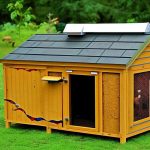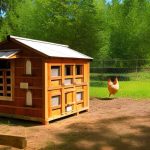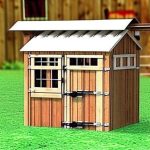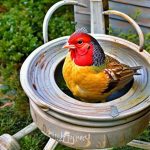Maintaining optimal temperature for chickens is essential for their health and productivity. Chickens lack sweat glands and rely on panting and wing-spreading to regulate body temperature. High temperatures can cause heat stress, leading to dehydration, decreased egg production, and potential mortality.
Heat stress also weakens the immune system, making chickens more susceptible to diseases. Preventing heat stress is a primary reason for keeping chickens cool. Prolonged exposure to high temperatures can result in reduced feed intake and egg production, as well as increased mortality rates in severe cases.
By implementing cooling strategies, poultry keepers can mitigate these risks and maintain flock health. Proper temperature management also contributes to improved chicken welfare. Comfortable environmental conditions promote better behavior, reduce aggression, and enhance social interactions within the flock.
This, in turn, can lead to increased productivity and overall flock health. Poultry keepers must be proactive in implementing cooling measures during hot weather to ensure the well-being and productivity of their chickens. Understanding the importance of temperature regulation is crucial for maintaining a healthy and productive flock throughout the year.
Table of Contents
- 1 Providing adequate shade and shelter for chickens
- 2 Ensuring proper ventilation in the chicken coop
- 3 Offering cool and refreshing treats for chickens
- 4 Using misting systems or fans to lower the temperature
- 5 Adjusting feeding and watering schedules during hot weather
- 6 Monitoring the health and behavior of chickens during heatwaves
- 7 FAQs
- 7.1 What are some ways to keep chickens cool in hot weather?
- 7.2 What are signs that chickens are overheated?
- 7.3 What should I do if my chickens are overheated?
- 7.4 How can I provide shade for my chickens?
- 7.5 How can I improve ventilation in my chicken coop?
- 7.6 What should I do if the temperature is extremely high?
Key Takeaways
- Keeping chickens cool is crucial for their health and well-being, especially during hot weather.
- Providing adequate shade and shelter is essential to protect chickens from direct sunlight and overheating.
- Proper ventilation in the chicken coop is necessary to maintain a comfortable and cool environment for the chickens.
- Offering cool and refreshing treats can help chickens stay hydrated and regulate their body temperature.
- Using misting systems or fans can effectively lower the temperature in the chicken coop and provide relief from the heat.
- Adjusting feeding and watering schedules during hot weather can help prevent dehydration and heat stress in chickens.
- Monitoring the health and behavior of chickens during heatwaves is important to identify any signs of distress or illness and take appropriate action.
Providing adequate shade and shelter for chickens
Creating Shade and Shelter
This can be achieved by planting trees or installing shade cloth over the chicken coop and run. Additionally, providing natural or artificial shelters within the coop can offer chickens a cool and comfortable place to rest during the hottest parts of the day. Adequate shade and shelter not only help chickens stay cool but also provide them with a safe and comfortable environment to thrive in.
The Importance of Ventilation
In addition to shade, proper ventilation is also important for keeping chickens cool. Good airflow within the chicken coop helps dissipate heat and moisture, creating a more comfortable environment for the birds. Poultry keepers should ensure that their coop is well-ventilated with windows, vents, or fans to promote air circulation and prevent the buildup of heat and humidity.
Benefits of a Cool and Comfortable Environment
Proper ventilation not only helps keep chickens cool but also reduces the risk of respiratory problems and ammonia buildup within the coop. By providing adequate shade and shelter, along with proper ventilation, poultry keepers can create a cool and comfortable environment for their flock to thrive in during hot weather.
Ensuring proper ventilation in the chicken coop
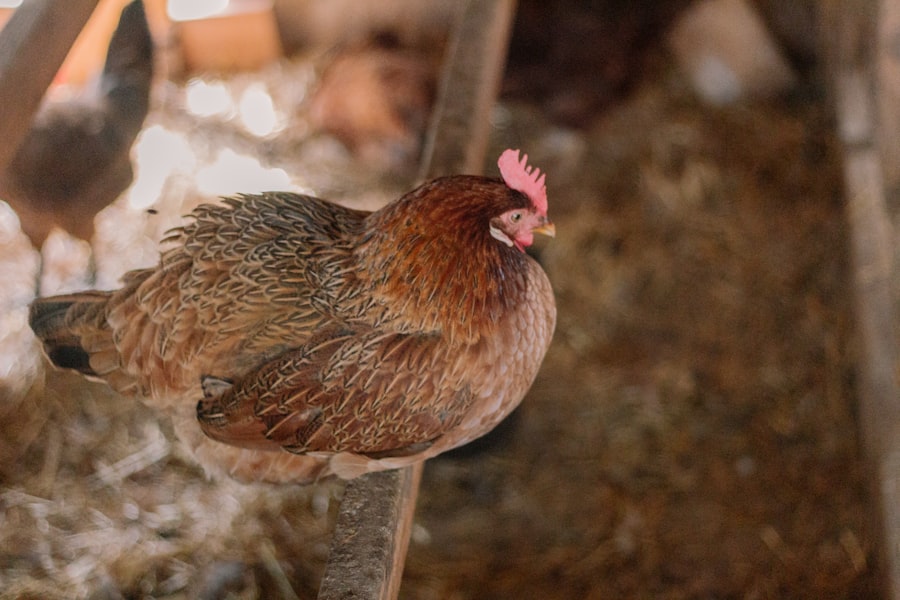
Ensuring proper ventilation in the chicken coop is crucial for maintaining a cool and comfortable environment for the birds, especially during hot weather. Good ventilation helps remove excess heat, moisture, and odors from the coop, creating a healthier and more pleasant living space for the chickens. Poultry keepers should ensure that their coop is well-ventilated with windows, vents, or fans to promote air circulation and prevent the buildup of heat and humidity.
Proper ventilation not only helps keep chickens cool but also reduces the risk of respiratory problems and ammonia buildup within the coop. By ensuring proper ventilation, poultry keepers can create a conducive environment for their flock to thrive in during hot weather. In addition to promoting air circulation, proper ventilation also helps prevent heat stress in chickens.
When hot air is allowed to escape from the coop, it helps maintain a cooler temperature inside, reducing the risk of heat stress in the birds. Proper ventilation also helps remove excess moisture from the coop, which can contribute to high humidity levels that make it harder for chickens to regulate their body temperature. By ensuring proper ventilation in the chicken coop, poultry keepers can create a more comfortable environment for their flock, reducing the risk of heat stress and promoting overall health and well-being.
Offering cool and refreshing treats for chickens
Offering cool and refreshing treats for chickens is a great way to help them beat the heat during hot weather. Cool treats not only provide relief from the high temperatures but also offer nutritional benefits for the birds. Poultry keepers can offer a variety of cool treats such as frozen fruits and vegetables, chilled watermelon or cucumber, or even ice cubes with mealworms or other treats frozen inside.
These treats not only help keep chickens cool but also provide them with essential nutrients and hydration to support their overall health and well-being. Additionally, offering cool treats can also provide enrichment for the birds, keeping them mentally stimulated and engaged during hot weather. Another option for offering cool treats is to provide frozen or refrigerated water bottles in the chicken coop or run.
These can serve as a source of coolness for chickens to lean against or peck at, providing them with relief from the heat. Poultry keepers can also consider adding electrolytes or vitamins to the chickens’ water to help them stay hydrated and replenish essential nutrients lost through panting in hot weather. By offering cool and refreshing treats, poultry keepers can help their flock stay cool, hydrated, and healthy during hot weather.
Using misting systems or fans to lower the temperature
Using misting systems or fans is an effective way to lower the temperature in the chicken coop and outdoor run during hot weather. Misting systems work by releasing a fine mist of water into the air, which evaporates and helps lower the ambient temperature. Poultry keepers can install misting systems in the outdoor run or near the chicken coop to provide a cooling effect for the birds.
Additionally, fans can be used to promote air circulation and reduce heat buildup within the coop. Fans help move air around, dissipating heat and moisture and creating a more comfortable environment for the chickens. In addition to misting systems and fans, evaporative cooling pads can also be used to lower the temperature within the chicken coop.
These pads work by drawing warm air through wet pads, which cools the air before it is circulated back into the coop. Evaporative cooling pads are an effective way to reduce the temperature within the coop and provide relief from hot weather for the birds. By using misting systems, fans, or evaporative cooling pads, poultry keepers can create a cooler and more comfortable environment for their flock during hot weather.
Adjusting feeding and watering schedules during hot weather
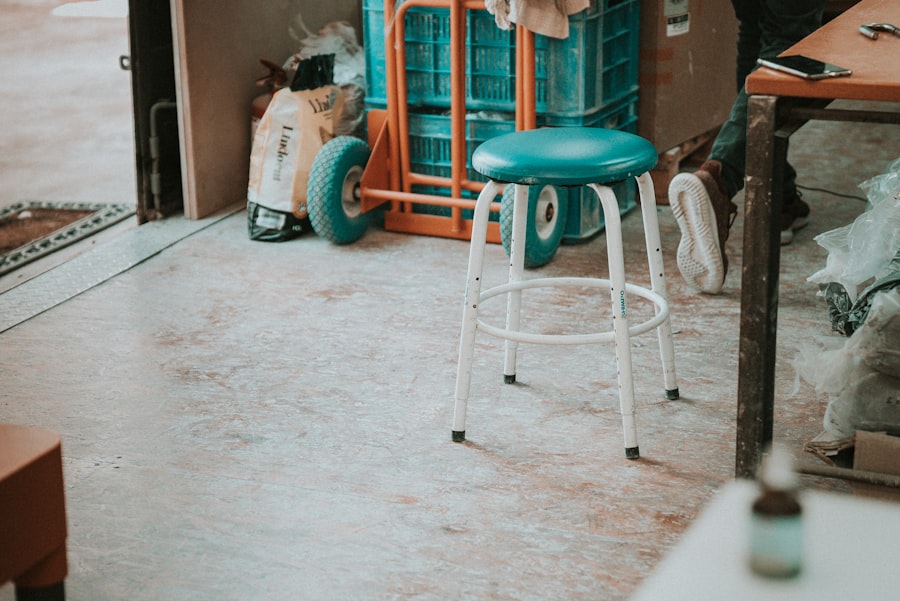
Adjusting feeding and watering schedules is crucial for ensuring that chickens stay hydrated and nourished during hot weather.
Optimizing Feeding Schedules
Poultry keepers should offer feed during the cooler parts of the day to reduce heat production from digestion and prevent feed spoilage in high temperatures.
Ensuring Access to Fresh Water
Providing access to fresh water at all times is crucial for helping chickens stay hydrated in hot weather. Poultry keepers should regularly check water sources to ensure they are clean, cool, and free from contaminants that could deter chickens from drinking.
Additional Support for Hydration
In addition to adjusting feeding and watering schedules, poultry keepers can also consider offering electrolytes or vitamins in the chickens’ water to help them stay hydrated and replenish essential nutrients lost through panting in hot weather. Electrolytes can help maintain proper hydration levels in chickens, especially during periods of high heat stress.
By adjusting feeding and watering schedules and offering electrolytes or vitamins as needed, poultry keepers can ensure that their flock stays healthy and hydrated during hot weather.
Monitoring the health and behavior of chickens during heatwaves
Monitoring the health and behavior of chickens is crucial during heatwaves to ensure that they are coping well with the high temperatures. Poultry keepers should regularly observe their flock for signs of heat stress such as panting, lethargy, reduced feed intake, or drooping wings. Additionally, monitoring egg production can also provide insights into how well chickens are coping with hot weather.
A decrease in egg production may indicate that chickens are experiencing heat stress and may require additional measures to keep them cool. In addition to monitoring physical signs of heat stress, poultry keepers should also observe the behavior of their flock for any changes in social dynamics or aggression that could be attributed to discomfort from high temperatures. By closely monitoring the health and behavior of chickens during heatwaves, poultry keepers can quickly identify any issues and take proactive measures to ensure that their flock stays cool, comfortable, and healthy during hot weather.
If you’re looking for more tips on keeping your chickens comfortable in hot weather, check out this article on where to put your chicken coop. It offers valuable advice on finding the best location for your coop to ensure your chickens stay cool and comfortable during the summer months.
FAQs
What are some ways to keep chickens cool in hot weather?
Some ways to keep chickens cool in hot weather include providing shade, ensuring good ventilation in the coop, offering cool water to drink, and using misters or fans to lower the temperature.
What are signs that chickens are overheated?
Signs that chickens are overheated include panting, holding their wings away from their bodies, reduced egg production, and decreased activity.
What should I do if my chickens are overheated?
If your chickens are overheated, move them to a cooler area with shade and good airflow, provide cool water for them to drink, and consider using misters or fans to help lower the temperature.
How can I provide shade for my chickens?
You can provide shade for your chickens by using natural shade from trees or shrubs, setting up tarps or shade cloths over their coop or run, or creating a covered area with a roof.
How can I improve ventilation in my chicken coop?
You can improve ventilation in your chicken coop by adding windows or vents to allow for airflow, ensuring there are no obstructions blocking air circulation, and keeping the coop clean to prevent ammonia buildup.
What should I do if the temperature is extremely high?
If the temperature is extremely high, consider bringing your chickens indoors to a cooler area, providing frozen treats or ice blocks for them to peck at, and monitoring them closely for signs of heat stress.

Meet Walter, the feathered-friend fanatic of Florida! Nestled in the sunshine state, Walter struts through life with his feathered companions, clucking his way to happiness. With a coop that’s fancier than a five-star hotel, he’s the Don Juan of the chicken world. When he’s not teaching his hens to do the cha-cha, you’ll find him in a heated debate with his prized rooster, Sir Clucks-a-Lot. Walter’s poultry passion is no yolk; he’s the sunny-side-up guy you never knew you needed in your flock of friends!
Meet Walter, the feathered-friend fanatic of Florida! Nestled in the sunshine state, Walter struts through life with his feathered companions, clucking his way to happiness. With a coop that’s fancier than a five-star hotel, he’s the Don Juan of the chicken world. When he’s not teaching his hens to do the cha-cha, you’ll find him in a heated debate with his prized rooster, Sir Clucks-a-Lot. Walter’s poultry passion is no yolk; he’s the sunny-side-up guy you never knew you needed in your flock of friends!


